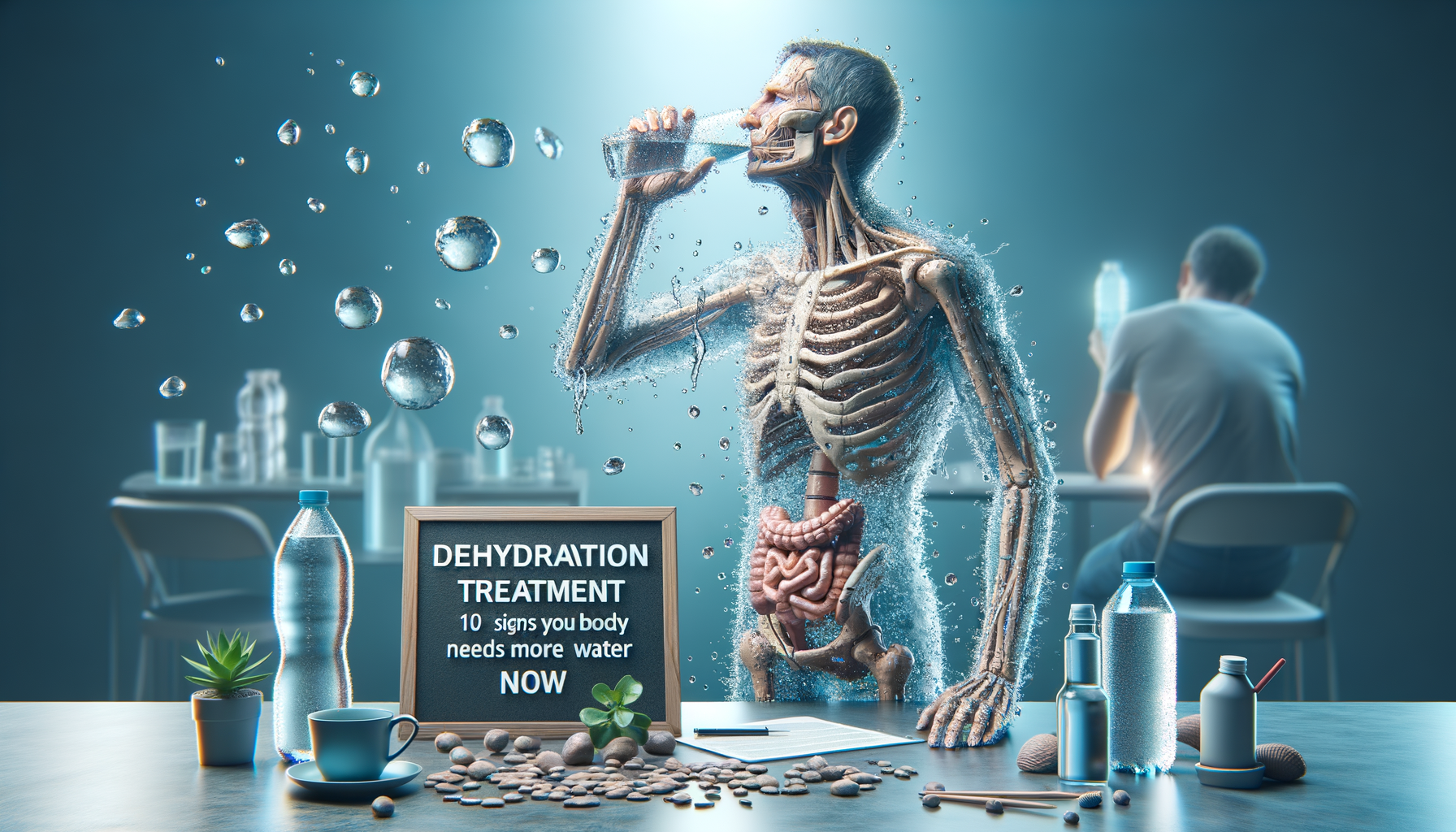10 Signs Your Body Needs More Water Now
Introduction to Dehydration Treatment Dehydration occurs when the body loses more fluids than it takes in, leading to an imbalance that can affect various bodily functions. Recognizing the signs of dehydration is crucial, as it can lead to severe health issues if left untreated. In this article, we will explore the importance of staying hydrated,

Introduction to Dehydration Treatment
Dehydration occurs when the body loses more fluids than it takes in, leading to an imbalance that can affect various bodily functions. Recognizing the signs of dehydration is crucial, as it can lead to severe health issues if left untreated. In this article, we will explore the importance of staying hydrated, the symptoms of dehydration, and effective treatments to ensure your body remains in peak condition.
Understanding the Causes of Dehydration
Dehydration can result from a variety of factors, ranging from environmental conditions to lifestyle choices. Common causes include:
- Excessive sweating due to heat or exercise
- Illnesses that cause vomiting or diarrhea
- Inadequate water intake
- Certain medications that increase urination
Each of these factors can contribute to a rapid loss of fluids, making it essential to replenish lost water to maintain health. By understanding these causes, individuals can take proactive steps to prevent dehydration, such as drinking sufficient water throughout the day and being mindful of their body’s needs during physical activities or in hot climates.
Identifying the Symptoms of Dehydration
Recognizing the signs of dehydration is the first step towards effective treatment. Common symptoms include:
- Dry mouth and skin
- Fatigue or dizziness
- Dark-colored urine
- Muscle cramps
In more severe cases, individuals may experience confusion, rapid heartbeat, or even fainting. By being aware of these symptoms, you can take immediate action to address dehydration before it leads to more serious health issues.
Effective Treatment Strategies for Dehydration
Treating dehydration involves replenishing the body’s lost fluids and electrolytes. Here are some effective strategies:
- Drink plenty of water throughout the day
- Consume beverages with electrolytes, such as sports drinks
- Eat water-rich foods like fruits and vegetables
For severe dehydration, medical intervention may be necessary, including intravenous fluids to quickly restore hydration levels. By implementing these strategies, you can ensure your body remains well-hydrated and healthy.
Prevention: The Key to Staying Hydrated
Preventing dehydration is often easier than treating it. Here are some tips to help you stay hydrated:
- Carry a water bottle with you and sip regularly
- Set reminders to drink water, especially if you are busy
- Monitor your urine color as an indicator of hydration levels
By making hydration a priority, you can avoid the negative effects of dehydration and maintain your overall well-being. Remember, staying hydrated is not just about drinking water when you are thirsty; it is about maintaining a consistent intake to support your body’s needs.
Conclusion: Prioritizing Hydration for Health
Dehydration is a common yet preventable condition that can have significant impacts on your health. By understanding the causes, symptoms, and treatment options, you can take proactive steps to ensure your body remains hydrated. Whether through drinking water, consuming electrolyte-rich beverages, or eating hydrating foods, the key is to maintain a balance that supports your body’s functions. Stay informed, stay hydrated, and prioritize your health to avoid the pitfalls of dehydration.